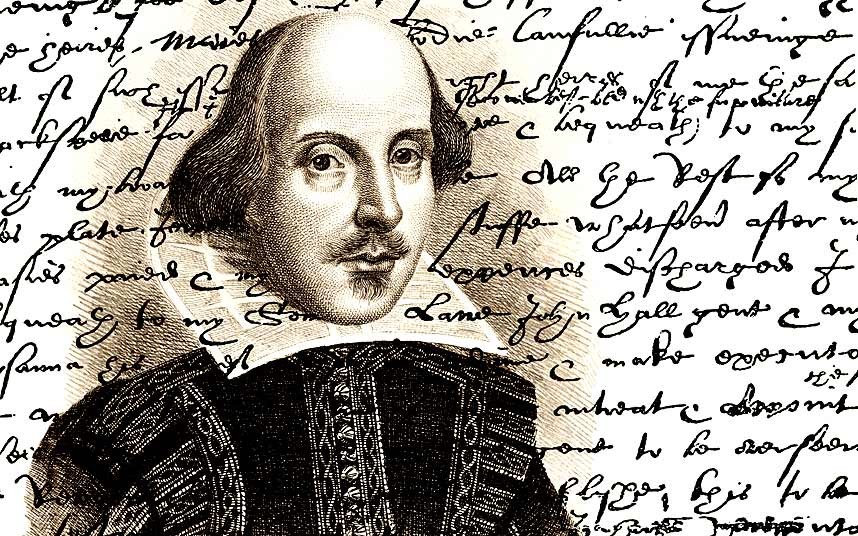
Did He or Didn’t He: Did Shakespeare Study Law? That is the Question
By Melissa Sarnicke
Considered the greatest dramatist of all time, William Shakespeare was an English playwright, poet, and actor who published approximately 37 plays and 154 sonnets in his lifetime [1]. However, there is controversy over his literary legacy, and his use of advanced legal terminology within his plays has been a subject of debate [1].
Born in 1564 in Stratford-upon-Avon, England, Shakespeare was educated in the King’s New School, where he learned to read and write. By 1592, Shakespeare became an actor and a playwright, earning his living as a managing partner for an acting company called the Lord Chamberlain’s Men [2]. By the end of the 1590’s, Shakespeare had published 15 plays, including his well-known comedies, As You Like It, Much Ado About Nothing, and Twelfth Night to name a few. Towards the end of his career, he published the remainder of his plays, including his most famous tragedies, Hamlet, Othello, Macbeth, and King Lear [1].
Throughout many of his plays, Shakespeare demonstrated his remarkable breadth of knowledge by referencing the law. His innovative writing style in iambic pentameter mixed legal terms with metaphors, and his sonnets were filled legal tropes [4]. He included scenes in his plays that highlighted his extensive knowledge of the law. In two thirds of Shakespeare’s plays, he depicted trial scenes [3]. Two examples of plays that included trial scenes are The Merchant of Venice and Measure for Measure. A number of his other plays contained characters that commented on the law, lawyers, government, revenge, power and its transfer, the nature of the state, inheritance, and contracts [3]. Shakespeare used the opening of Henry V to address the issue of whether women were legally permitted to rule England [4]. He also demonstrated his knowledge of a famous case in English jurisprudence, Hales v. Petit, in his renowned play, Hamlet [4]. Shakespeare even added some legal humor into his comedies, such as the dialogue between Touchstone and Corin in Act 3, Scene 2 of As You Like It:
TOUCHSTONE: Wast ever in court, shepherd?
CORIN: No, truly.
TOUCHSTONE: Then thou art damned.
CORIN: Nay, I hope.
TOUCHSTONE: Truly, thou art damned like an ill-roasted egg, all on one side.
CORIN: For not being at court? Your reason?
TOUCHSTONE: Why, if thou never wast at court, thou never sawest good manners; if thou never sawest good manners, then thy manners must be wicked; and wickedness is sin, and sin is damnation. Thou art in a parlous state, shepherd [5].
Shakespeare’s frequent references to the law in his plays have led many to question whether he was actually the true author of his plays, or whether he was ever educated in English Law. His legal references have led theorists to speculate that someone with legal training, other than Shakespeare, wrote the plays [4]. On the other hand, some scholars believe that Shakespeare may have worked as a law clerk during the “lost years” of his life, 1585-1595 [4]. There is little evidence as to what Shakespeare was doing during this time of his life. However, Shakespeare had many friends that were lawyers, and many audience members of his performances were lawyers, and he used these relationships to learn about the law [3]. He even consulted in these acquaintances to revise his plays [3].
Although there are many unanswered questions about Shakespeare’s education on the law and whether he was the author of his plays, they have made a lasting impact on readers, especially lawyers. According to Daniel Kornstein in his article, “Shakespeare the Unacknowledged Legislator,” “All lawyers should read Shakespeare for, if nothing else, the fabled beauty and lasting power of his expression. Lawyers depend heavily on words and language; they must be sensitive to nuance and meaning… They will become better speakers and writers—and thereby better advocates—for having studied Shakespeare with an eye toward their own profession” [3]. Shakespeare’s plays allow lawyers to grasp a relationship between human nature and the law. His works illuminate the basic aspects of law, such as the relationship between law and morals, the way revenge plays a role in the law, and how to “think like a lawyer” [3]. Kornstein explains, “The list of law-related topics in Shakespeare goes on and on, each one pushing [lawyers] to question our most basic premises of legal understanding” [3].
Not only has Shakespeare made an impact on English Law, but the playwright has also been quoted or referred to in nearly 800 judicial opinions from state and federal courts according to a 1993 study [3]. Kornstein explains, “Shakespeare’s fingerprints are all over our American legal furniture. Not surprisingly, perhaps, he has been cited or quoted by American courts more often than any other literary figure” [3]. Shakespeare’s inclusion of legal themes into his plays has influenced lawyers in the United States, and his work continues to be cited by lawyers even today.
Shakespeare’s literary works are timeless. His plays have impacted readers, particularly lawyers. His legal terminology and the legal themes embedded in his plays are quite impressive, considering it is likely that he had no formal legal education. Whether or not Shakespeare was the true author of his plays, their content, style, and the lessons they teach, including those about law, are remarkable.
For examples of Supreme Court decisions that have quoted Shakespeare, visit https://media.law.wisc.edu/s/c_420/yzkwm/gargoyle_21_4_2.pdf
To see some of Shakespeare’s famous quotes from his plays that reference lawyers and the law, visit http://www.shakespeare-online.com/quotes/shakespearelawyers.html
References:
[1] http://www.bl.uk/treasures/shakespeare/basics.html
[2] http://www.biography.com/people/william-shakespeare-9480323
[3] Daniel J. Kornstein, Shakespeare the Unacknowledged Legislator, 66 N.Y. St. B.J. 50 (JAN 1994).
[4] http://politicworm.com/oxford-shakespeare/the-big-six-candidates/oxford-and-the-english-literary-renaissance/shakespeare-and-sir-thomas-smith/smith-and-civil-law/
[5] http://www.shakespeare-online.com/quotes/shakespearelawyers.html